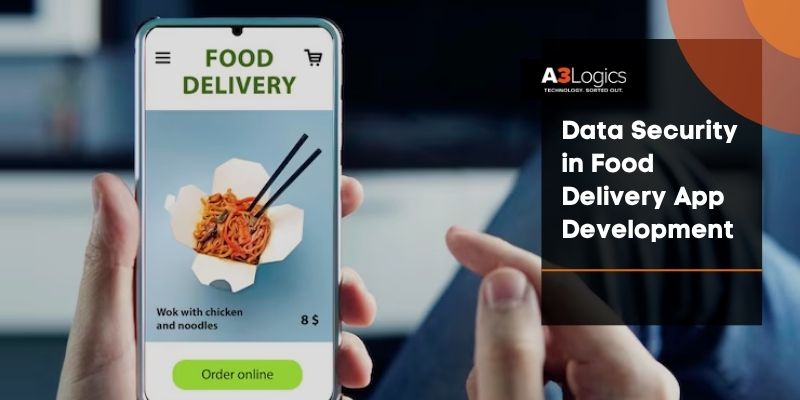In a world where convenience is king, food delivery apps have become essential. But as users trust these platforms with their details—phone numbers, addresses, card info—the need for data security in app development is more crucial than ever.
Whether you’re building a custom platform or enhancing an existing one, safeguarding sensitive information should be at the core of your food delivery app development strategy.
Why Data Security is a Priority
From customer data to vendor details and transaction records, food delivery apps handle large volumes of sensitive information daily. A single data breach can damage your brand, result in legal trouble, and drive users away permanently.
Some key threats include:
- Payment data theft
- Phishing attacks
- Unsecured third-party APIs
- Poor session handling
As the food tech space grows, cybersecurity in food delivery apps must keep pace.
Start with a Security-Focused Development Plan
Whether you choose a white-label platform or go custom, your development process should be built around a security-first mindset. Key planning steps include:
- Conducting threat modeling during the planning phase
- Ensuring all third-party services (payment gateways, map APIs) follow secure protocols
- Building access control layers (admin vs user vs restaurant roles)
- Regularly reviewing compliance with regulations like GDPR, CCPA, and PCI DSS
Consulting with a food delivery app development company that understands cybersecurity best practices will save you trouble down the line.
Secure Data Architecture
A strong backend is the first step in building trust. Use a secure and scalable tech stack:
- Backend: Node.js, Django, or Laravel with OAuth2
- Database: Encrypted PostgreSQL / MongoDB
- Cloud: AWS with IAM and encryption at rest
- Authentication: JWT, OTP-based login, Multi-Factor Authentication (MFA)
Always separate user data from transaction and location data in your architecture. This limits exposure in case of a breach.
Protecting Payment Information
Payments are the most sensitive part of any food delivery app. Here’s how to keep them secure:
- Use PCI-DSS-compliant payment gateways like Stripe, Razorpay, or PayPal
- Tokenize card information instead of storing it
- Enable strong SSL/TLS encryption across the app
- Provide secure wallets with PIN or biometric protection
Apps that handle payment details directly must go through additional certifications, which is why many developers prefer external, trusted gateways.
User Data Security Best Practices
To win user trust and stay compliant, here’s what your app must do:
- Enforce secure login (via phone/email OTP or SSO)
- Encrypt personal data in transit and at rest
- Provide users with data access and deletion rights (for GDPR compliance)
- Auto-logout inactive sessions
- Mask sensitive data in push notifications
Also, avoid requesting unnecessary information during sign-up. Simplicity and safety go hand in hand.
Securing Delivery Partner & Restaurant Interfaces
Don’t overlook the security of your vendor dashboards and delivery apps. These portals can be weak entry points if not built securely.
- Use role-based access controls (RBAC)
- Limit data visibility—only allow access to what’s needed (e.g., only current order data)
- Track every login, location update, and transaction
- Set time-restricted API tokens for data exchange
- Integrate real-time fraud detection tools to flag suspicious behavior
Regular Security Audits & Updates
Even a well-developed app can become vulnerable if left unchecked. Build a proactive maintenance schedule:
- Conduct regular vulnerability scans
- Run penetration tests with third-party security firms
- Patch third-party dependencies regularly
- Apply security updates to OS, backend, and database
- Monitor app activity using tools like Sentry, OWASP ZAP, or CloudWatch
With cyber threats evolving constantly, real-time alerts and audits are non-negotiable.
Compliance and Legal Considerations
When developing a food delivery app, staying compliant with data privacy laws is crucial for international scaling.
Ensure your app follows:
- GDPR (for EU users): User consent, data portability, and access control
- CCPA (for California): Right to opt out and delete data
- PCI DSS: For handling payments
- HIPAA (if offering dietary/health-based delivery)
A reputable app development company can help ensure your code and systems meet all necessary regulations from day one.
Why Choose A3Logics for Secure Food Delivery App Development?
At A3Logics, we build food delivery solutions with security built-in, not bolted on later. Here’s how we help you stay safe and compliant:
- End-to-end encryption across all data
- Multi-layer access control systems
- Regular code reviews and vulnerability testing
- GDPR and PCI-compliant development
- Secure DevOps and CI/CD practices
- Experience handling both B2B and B2C food tech platforms
Whether you’re a startup or a global food chain, we ensure your data stays safe—and your users stay loyal.
Conclusion
Data security isn’t an optional feature—it’s the foundation of trust in food delivery app development. With user privacy laws tightening and cyber threats growing, only the apps that protect user data will survive and scale.
Whether you’re developing a white-label app or a custom platform, make sure security is baked into your code from the start.
Need help building a secure, scalable delivery app?
Partner with A3Logics — your trusted food delivery app development company with cybersecurity expertise.



